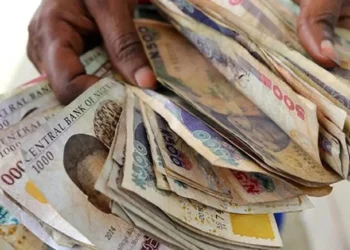The daily average forex turnover on the FMDQ platform surged to $294 million in November, marking the highest figure recorded this year. This milestone highlights improving liquidity in Nigeria’s official forex market amidst persistent foreign exchange challenges.
Record-Breaking November
An analysis of FMDQ data reveals that November’s average daily forex turnover reached $293.9 million, surpassing the previous peak of $252 million in March. October ranked third with an average turnover of $245 million. This upward trend represents a notable recovery from the mid-year slump between June and September, when daily averages fell below $200 million.
November’s exceptional performance can be attributed to a record daily turnover of $1.4 billion on November 8th, the highest single-day trading volume this year. In addition, robust trading activity was observed during the final week, with daily turnovers of $425 million, $337 million, and $560 million on November 26th, 27th, and 28th, respectively.
Exchange Rate Dynamics
Despite the spike in forex turnover, the exchange rate disparity between the official and parallel markets widened, with a gap of approximately N100. The official exchange rate closed at N1,644/$1 on November 28th, with intraday highs of N1,701/$1 and lows of N1,557/$1.
Factors Boosting Liquidity
Foreign remittances have played a pivotal role in enhancing market liquidity. According to the Central Bank of Nigeria (CBN), monthly remittances rose sharply from $200 million to $600 million by October. Additionally, Nigeria’s external reserves increased to $40.8 billion by November 21, 2024, up from $40.06 billion at the end of October. These reserves are sufficient to finance approximately 17 months of imports.
The CBN’s Monetary Policy Committee (MPC) has acknowledged ongoing exchange rate pressures and emphasized the importance of further measures to improve liquidity. “Members expressed concern over persisting exchange rate pressures… and urged the Bank to explore measures to boost market liquidity,” stated the MPC communiqué.
Implications for the Forex Market
The rise in forex turnover underscores growing confidence in the official forex market as the year draws to a close. However, exchange rate volatility and the widening gap with the parallel market remain key challenges. Market participants will look to the CBN for continued interventions aimed at ensuring stability and addressing forex demand pressures.
The November surge demonstrates the market’s resilience and reflects ongoing efforts to stabilize Nigeria’s foreign exchange environment as the nation prepares for 2025.









